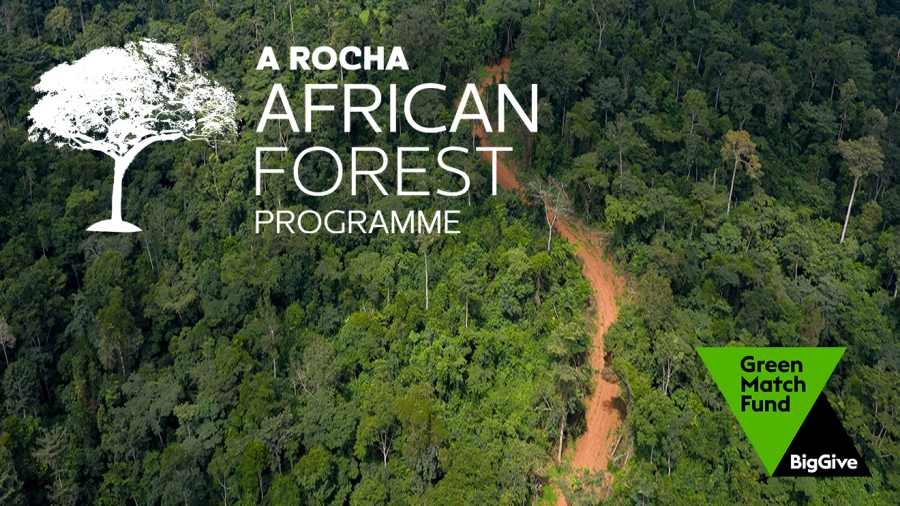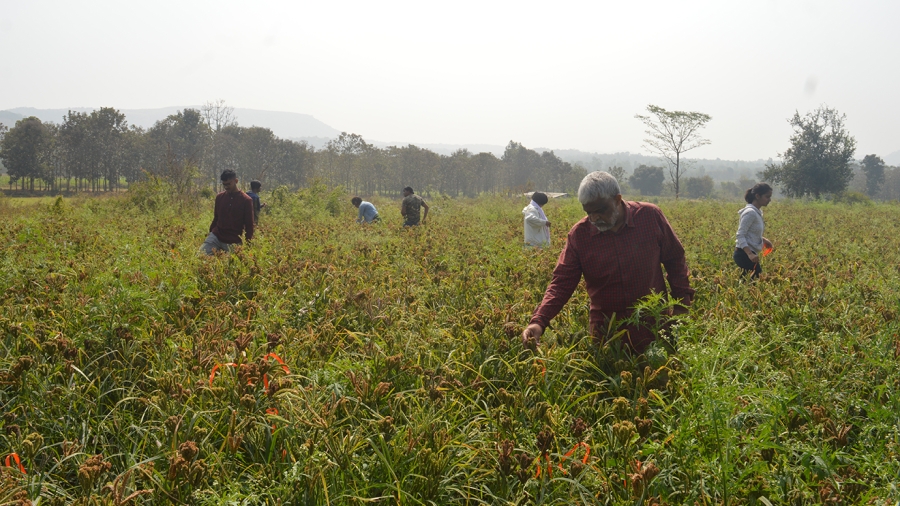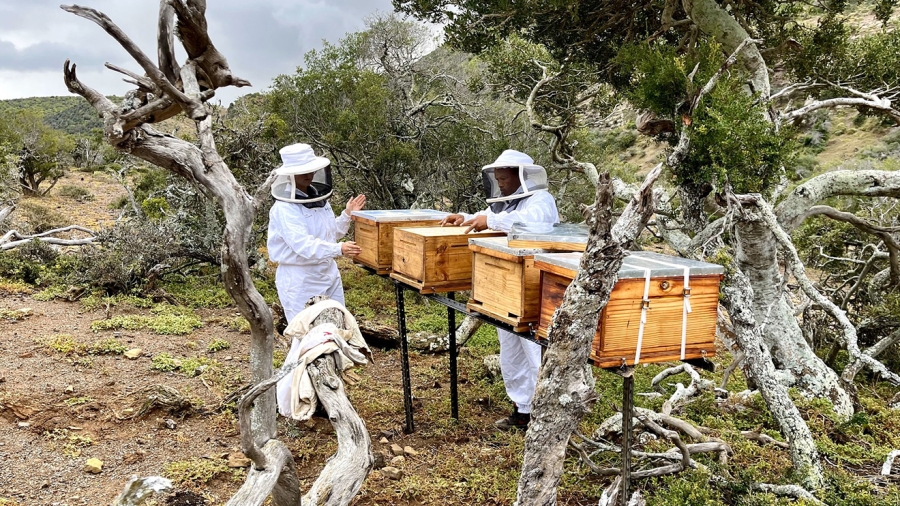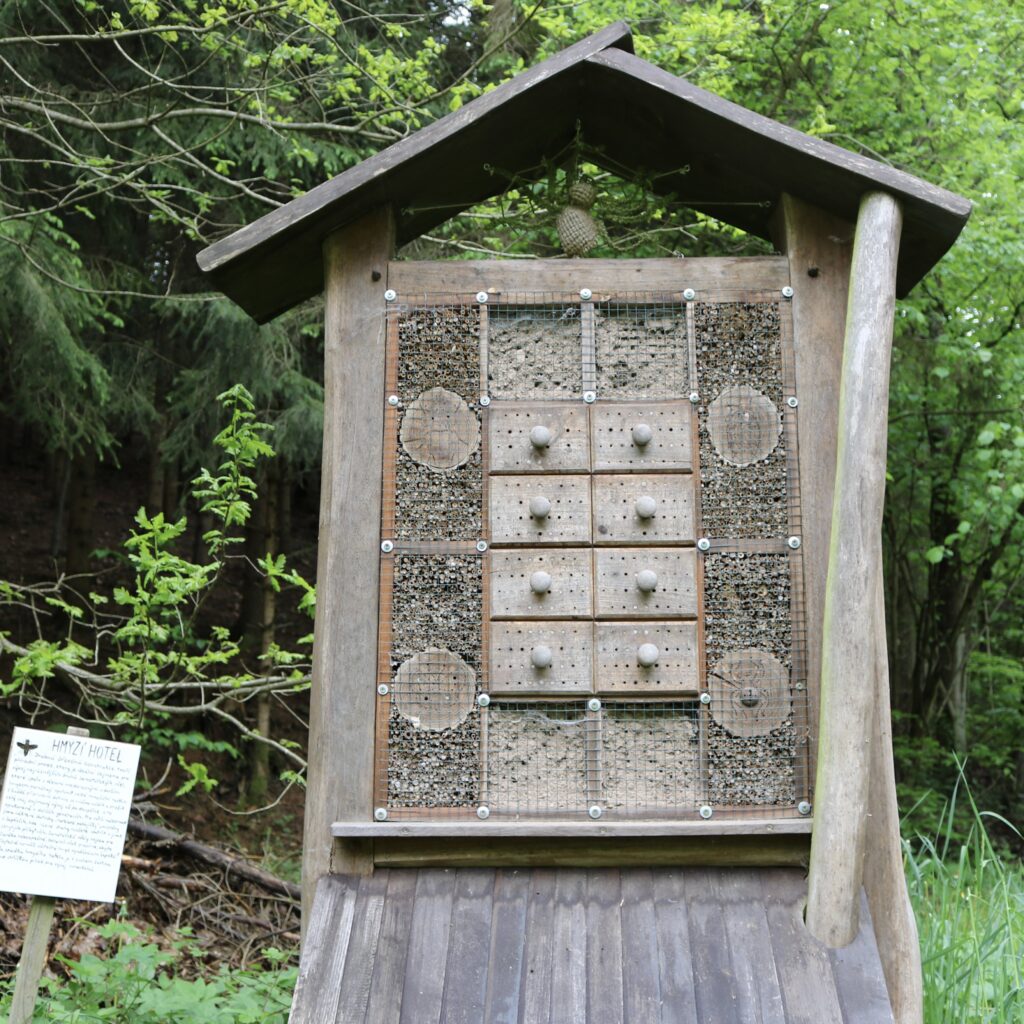Switching to organic farming can feel risky for independent farmers in India. Lower yields than normal can be expected for the first two to three years, but ultimately, adopting sustainable practices cultivates healthier soil, cleaner ecosystems and more nutrient-dense harvests: a win-win for people and planet!
A Rocha India is equipping farmers in the Bannerghatta-Hosur region to make a bold transition to organic farming. Beginning with a thorough survey of farming communities in the region, they take care to understand the needs of the community. They then offer educational workshops and share information about government aid, which can ease the transition. A Rocha aims to impart sound ecological knowledge to these farmers about their environment, as well as learn from the wealth of their indigenous, traditional knowledge and help propagate it on a community level.
The project has seen some ups and downs since it began in 2022: one year, a delayed onset of monsoons meant that the area was still receiving heavy rainfall during harvest season, which is typically dry. The next year, there were poor weather conditions at the planting stage. Farmers are highly vulnerable to a changing climate and unpredictable weather, which can ruin some or all of a harvest. To mitigate these risks, A Rocha distributes climate and pest-resistant seeds and provides organic manure to get farmers started.
It takes time for the full ecological and health benefits of organic farming to be realized, which is why A Rocha is building long-term relationships with select farms. We are also creating a sustainable demand and supply chain for the crop. This has been a great opportunity for A Rocha to involve volunteers and other stakeholders from the neighbouring metropolitan city of Bangalore. It has encouraged them to learn more about this environmentally sustainable way of farming and spread the message!
Organic farming isn’t just about human health: it’s a conservation practice, as well. Commercial farming, predominately a monoculture practice, wreaks havoc on our soil and habitats, eliminating the biodiversity that local species need to thrive. By going organic, we are not only protecting our soil and water; we are also creating spaces where native plants and animals can flourish. This is especially important in the partner farms around Bannerghatta National Park and the North Cauvery Wildlife Sanctuary. Organic farming means sustainable livelihoods for the people, as well as healthy habitats for elephants, hares, deer and leopards who live there, too.
Globally, these projects contribute to the Sustainable Development Goals for Zero Hunger and Life on Land. Learn more about the Global Goals at sdgs.un.org/goals



